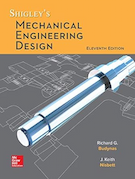The Impact of Continuing Education on Career Advancement
Continuing education is an ongoing process of learning that allows individuals to update their skills, knowledge, and abilities in their respective field of work. For engineers, this is particularly important, as the industry is constantly changing and evolving. Keeping up with new technologies and advancements in the field is critical for career advancement and success. In this article, we will explore the impact of continuing education on career advancement for engineers and the benefits that come with it.

Career Advancement
One of the biggest benefits of continuing education is career advancement. In the engineering field, continuous learning is essential for maintaining professional competency and staying ahead of the curve. Engineers who take the time to keep their skills and knowledge up to date are in a better position to move up the career ladder, as they have the skills and knowledge necessary to tackle more complex projects and challenges.
In addition, continuing education can help engineers specialize in a particular area of engineering, which can also lead to career advancement. For example, an engineer who has specialized in a specific area of civil engineering, such as structural engineering, is in a better position to advance to a higher position within the company than an engineer who has only taken general engineering courses. This is because they have the specific knowledge and skills necessary to take on more complex projects within that area of specialization.
Increased Earning Potential
Continuing education can also lead to increased earning potential for engineers. Engineers who have taken additional courses and earned certifications in their area of expertise are in a better position to negotiate higher salaries and better benefits. Employers recognize the value of having an engineer who is up to date with the latest technologies and advancements in the field, and are willing to pay a premium for this knowledge and experience.
Moreover, continuing education can help engineers stay current in their field and avoid obsolescence. In many engineering fields, technology and processes are changing rapidly. Engineers who fail to keep up with these changes are at risk of becoming obsolete and being replaced by those who have taken the time to continue their education.
Networking Opportunities
Continuing education provides engineers with opportunities to network with other professionals in their field. This can lead to new professional connections, which can help engineers find new job opportunities, get advice and mentorship, and stay up to date on industry developments. In addition, continuing education can help engineers expand their professional network and build relationships with other professionals in their field.
Enhancing Professional Reputation
Continuing education can also enhance an engineer's professional reputation. Engineers who take the time to continue their education demonstrate a commitment to their profession and a willingness to stay current with the latest technologies and advancements in their field. This can help engineers stand out from their peers and can be a valuable asset in the job market.
PDH Classroom offers a suite of online continuing education courses tailored to engineers. These courses can be used to fulfill PDH credit requirements for maintaining your PE license, or just as a part of staying ahead in your field.
Continuing education is critical for the success and career advancement of engineers. It allows engineers to maintain their professional competency, specialize in a particular area of engineering, increase their earning potential, network with other professionals in their field, and enhance their professional reputation. With the engineering industry constantly changing and evolving, it's more important than ever for engineers to invest in continuing education to ensure their long-term success and career advancement.




